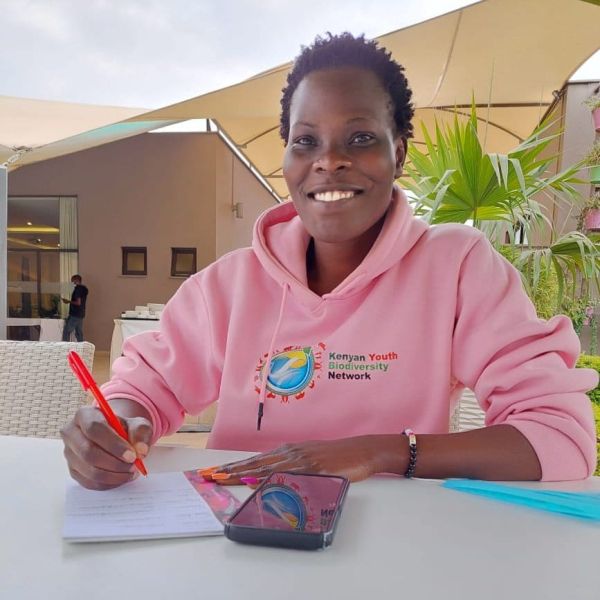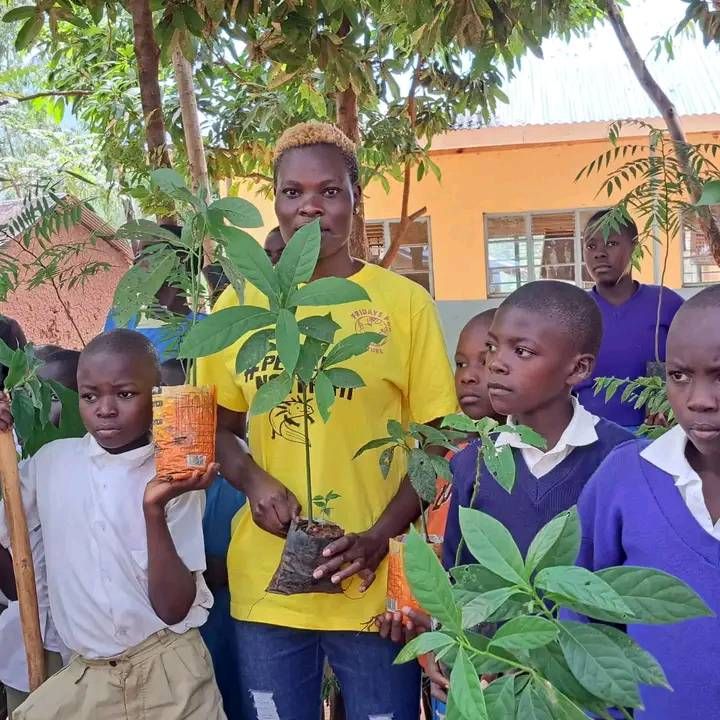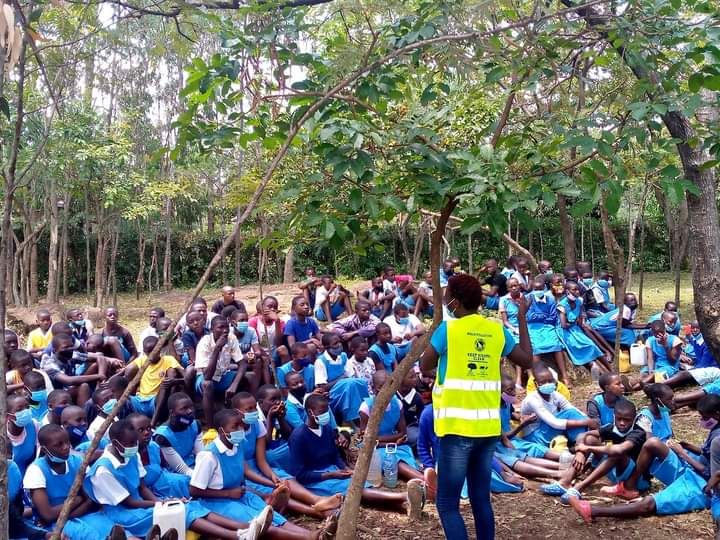Image

Age: 25
Kenya
Pauline (she/her) is a sustainability advocate, leading the transition to a healthier, more sustainable world for people, nature, and the planet through promoting and implementing ecosystem restoration initiatives.
How are you using education to build more sustainable and equitable communities?
Thanks to my initiative, which is at the forefront of environmental promotion in Kenya, I have been able to work with both young people in institutions and local communities to raise awareness of the need for environmental protection and to start activities that promote environmental protection.
I spearhead environmental education and initiatives in the local community and schools. In schools, my focus is on creating student-run kitchen gardens and school forests. After that, I enhance students' capacity by providing them with a foundation in environmental education, enabling them to be environmental stewards. I also closely collaborate with small-scale farmers, teaching them permaculture and organic farming techniques.
In addition, I'm a member of the Stockholm+50 Youth Task Force, which promotes youth involvement and offers a common forum for all interested youth and youth advocates to participate and interact in, and co-design youth engagement activities for United Nations environmental engagement events.
Since the program's beginning, I have helped to write policy papers, The Youth Handbook, and various youth event planning and capacity development sessions to inform young people about UN procedures.
Tell us about your journey to where you are today.
As a sustainability champion, I have learned to overcome numerous challenges. At home in my rural Siaya, Kenya community, I have become a community leader. I grew up on a farm with a mother who was teaching science, so I had an "informed" love of nature.
My environmental action began when I was about 12, when I started helping to propagate tree seedlings at the church community seedbeds. Although I would describe myself as "non-religious," I was attracted to the music and dancing among the other community exchange activities coordinated by the church.
Through my years as a teenage African climate activist, I have held on to my belief and determination that young women will become the future world leaders. Through this experience, I have championed marginalized voices within my community, NGOs, and governments internationally. I have used this experience to build strength and become a better educator, youth leader, and sustainability champion.
I founded The Polly Foundation to coordinate community environmental education and action. My projects at home include teaching the children about gardening and tree planting. On the agricultural side, I am training locals on organic practices and permaculture.
My foundation has become the umbrella organization of my expanding activities.
A LITTLE MORE ABOUT ME
What book, film, or art piece has had the greatest impact on you?
Active Hope by Joana Macy, PhD. This book has had an influence on me because it reveals the full scope of the crisis and demonstrates how our hearts and deeds might open the door to transformation.If you could be any animal or plant, what would you be and why?
I would be an elephant because they’re strong and great leaders. Elephants usually stay in small groups, but they’re extremely loyal to those around them.If a genie granted you one wish, what would it be?
I would wish for world peace. We have reached a point in the world where everyone is ready for war to solve their problems, and peace itself has become expensive to achieve.

Environmental education at Kindu RC Primary, which was followed by planting 250 indigenous trees. Photo credit: Winslet of Kisumu Environmental Champions

An environmental education session at Mawembe Kodero Primary School, which included a session on tree planting and conservation agriculture. Photo credit: John Henry of African Nazarene University.